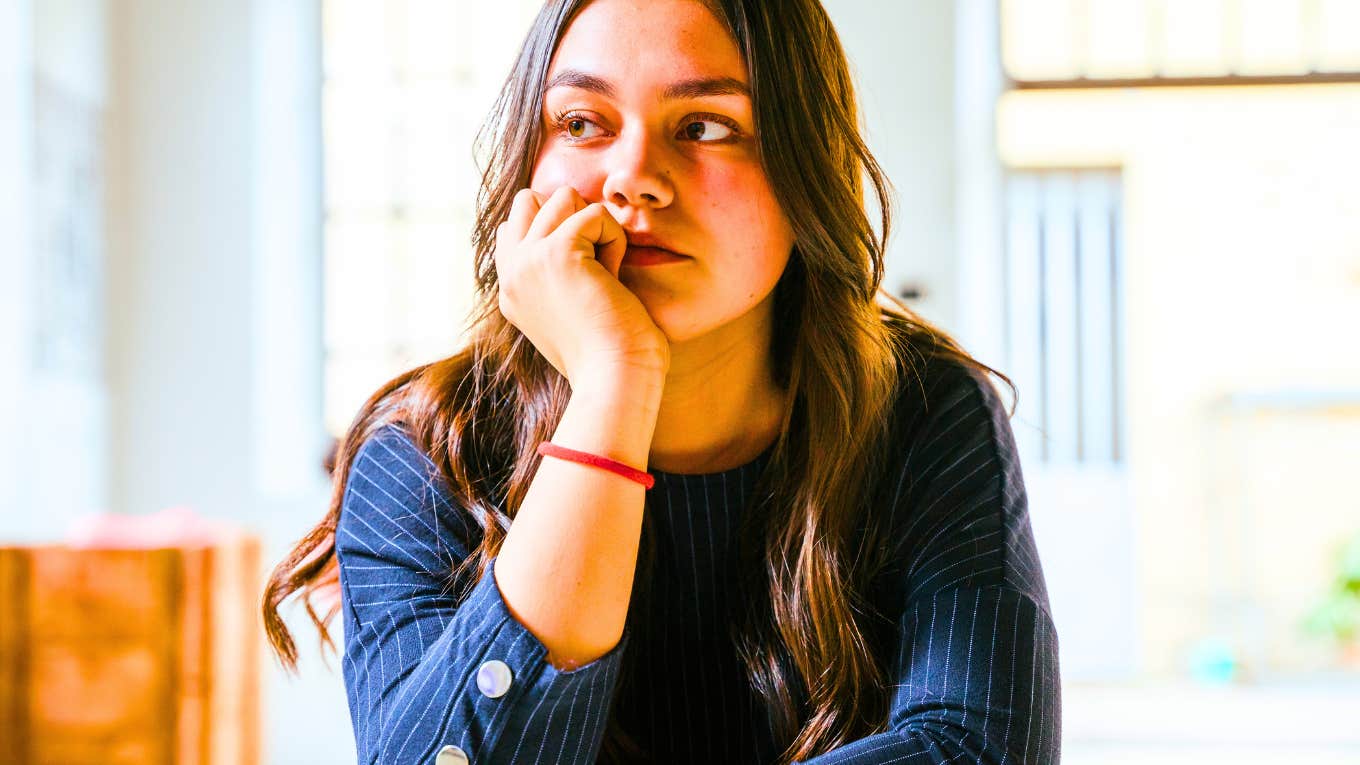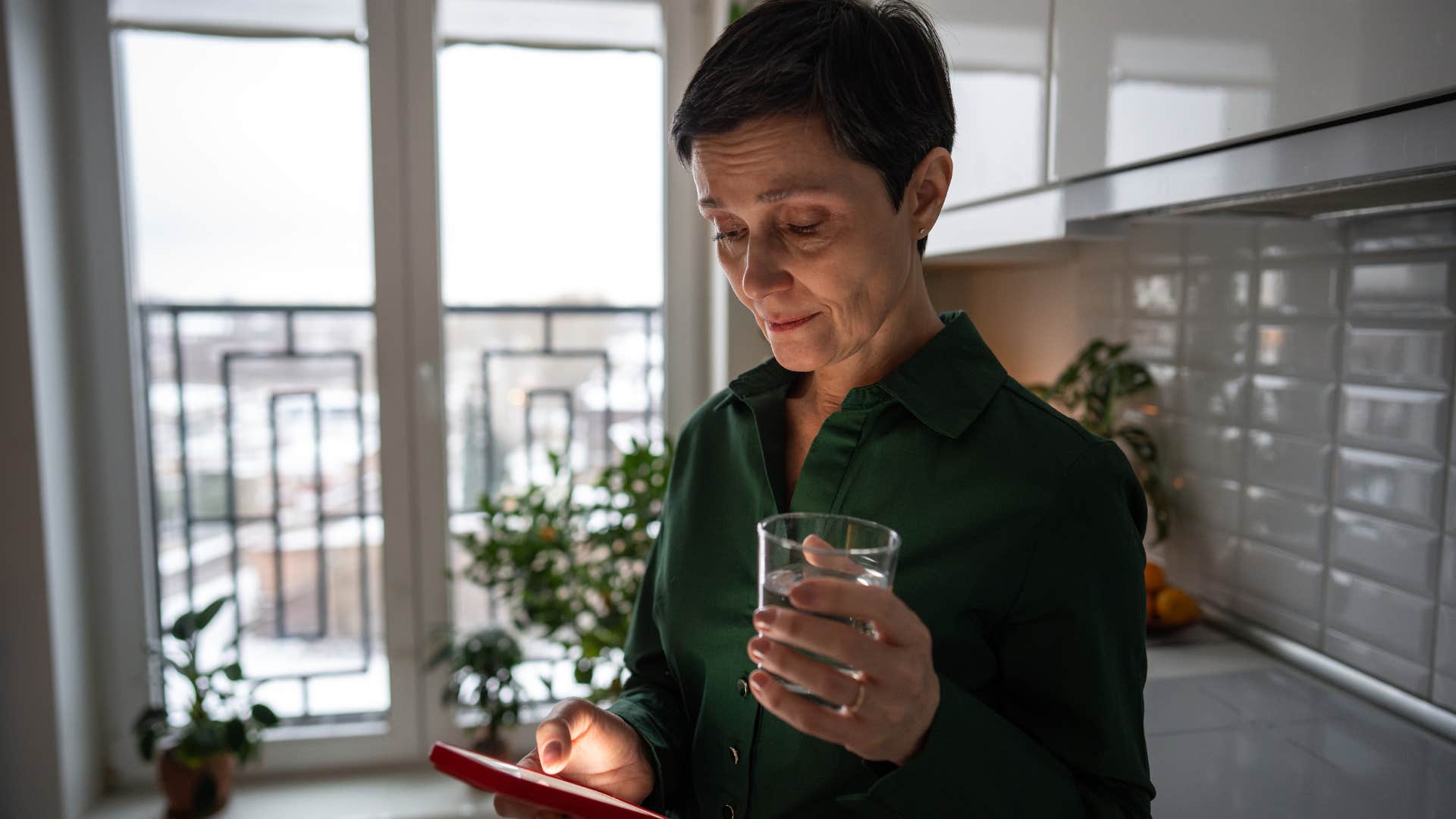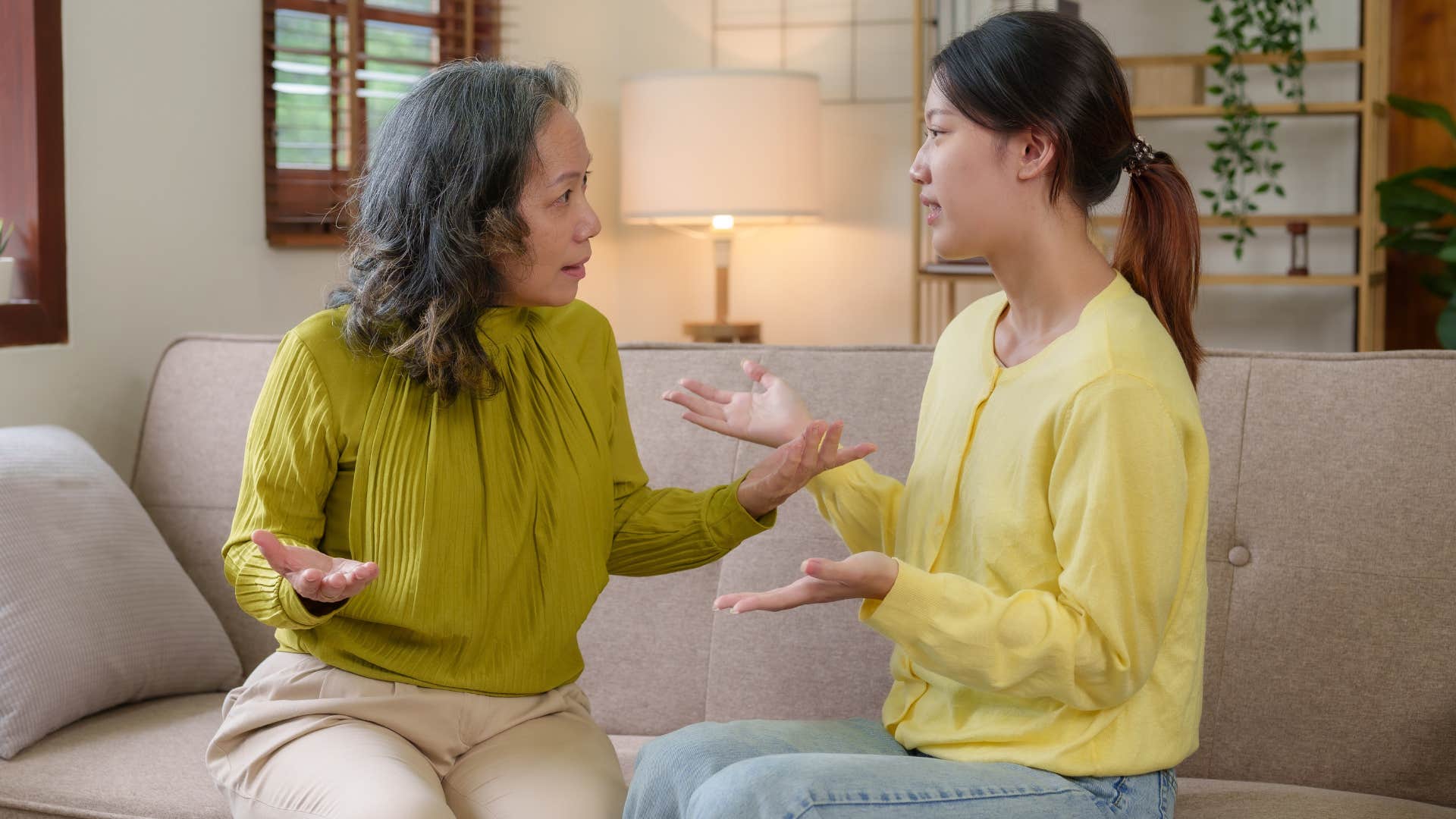Adults Who Don’t Visit Their Parents Often As They Get Older Usually Have These 11 Reasons
If you're uncomfortable with this natural disconnect, you're not alone.
 loreanto / Shutterstock
loreanto / Shutterstock It's more common than many may think for there to be tension between parents and their adult children later in life. According to a study published in the Psychology and Aging journal, these issues may be rooted in a variety of different causes, from generational value differences to poor communication and distance.
Of course, distance can be natural in these family dynamics later in life, and not all separation is a sign of underlying resentment. Still, adults who don’t visit their parents often as they get older usually have several understandable reasons. Whether it’s intentional or not, these relationships evolve and change as children grow into their own sense of autonomy, independence, and values, sometimes for the worse and not for the better.
Adults who don’t visit their parents often as they get older usually have these 11 reasons
1. They don’t live nearby
 Pics Five | Shutterstock.com
Pics Five | Shutterstock.com
While many of the other reasons why adult children decide to visit their parents less as they get older are intentional, sometimes geographical distance is just as common a circumstance. Not only is it harder to make time for travel when you’re working a lot, dealing with financial uncertainty, or growing a family of your own, but making space for quality time with family can also feel overwhelming and anxiety-inducing amid the chaos of it all.
Of course, the health and well-being of these family relationships has less to do with spatial closeness than with factors like income and socioeconomic status, according to a study published in the Journal of Marriage and Family. When adult children make less money, have less time, and work more, they tend to live closer to their parents for support with living arrangements and childcare.
So, spatial distance may be a reason why adults don’t visit their parents as often as they get older, but it’s also often a sign of their autonomy and independence. They don’t need support anymore.
2. They’re busy
 George Rudy | Shutterstock.com
George Rudy | Shutterstock.com
Natural disconnect, especially after decades of closeness and consistent quality time, can be disorienting and hard to cope with for parents. That’s why many fall into toxic behaviors, like guilt-tripping their kids and crossing boundaries they’d otherwise despise, simply for the sake of seeking their adult kids. However, adults who don’t visit their parents often as they get older are usually just busy.
They have their own lives, work schedules, kids, and relationships to look after, so making time for their parents becomes more difficult, especially when they’re only ever met with toxic behaviors like guilt-tripping, rather than a phrase like “we miss you” or “Do you want to come spend a weekend with us?”
3. They don’t have the money
 Perfect Wave | Shutterstock.com
Perfect Wave | Shutterstock.com
According to a 2024 study, many people underestimate the kind of burden that travel places on their financial stability, along with overspending on unexpected expenses and taking on debt that sabotages their future economic status. So, adults who don’t visit their parents often as they get older may simply be more financially literate and self-disciplined, saving money for emergencies and unexpected costs instead of impulsive and costly trips.
Of course, quality time is still important for parents and their kids, even later in life, whether it’s a responsibly planned trip or a FaceTime call in the evenings.
4. They feel guilty
 Studio Romantic | Shutterstock.com
Studio Romantic | Shutterstock.com
Oftentimes, if distance and separation become a pattern, adult children don’t visit their parents solely out of guilt. The more they don’t visit, the more guilty they feel, sparking a cycle of disconnection, resentment, and shame.
In other cases, unmet expectations and needs in a family dynamic can feed into this sense of guilt that separates parents from their adult children. For example, as a 2013 study explains, parents who perceive their kids to have poorer career success often experience guilt, disappointment, and worry that trickles down to their kids in unsuspecting ways.
To avoid dealing with that deep-rooted shame and even justifying their life decisions, they stop visiting their parents as they get older to protect their own well-being.
5. They have unresolved childhood trauma
 ViDI Studio | Shutterstock.com
ViDI Studio | Shutterstock.com
According to a study published in Frontiers in Psychiatry, adult children who’ve experienced childhood trauma and are still grappling with unresolved consequences tend to struggle with romantic relationships later in life. Alongside relationship struggles, things like hyper-independence, poor coping mechanisms, and lowered self-esteem are all prevalent amongst adult children dealing with unresolved trauma.
Many adults who don’t visit their parents often as they get older are learning to cope with this trauma on their own, rather than putting themselves in situations to feel invalidated, dismissed, and unheard by their parents.
If they don’t believe they have a safe space to express emotions and concerns about their childhood with their parents, even if it’s just emotional support, rather than explicit accountability, they’d prefer to focus on their own well-being and lives without reaching out.
6. They yearn for independence
 Voronaman | Shutterstock.com
Voronaman | Shutterstock.com
Many adult children who’ve experienced unmet needs in childhood or the feeling of being consistently belittled and infantilized around their parents as adults prefer to lean into independence. Rather than making time for their parents, who often set their progress back and remind them of trauma, they focus on their own lives and creating distance from that past version of themselves.
Children learn how to build their relationships and navigate the world later in life from their parents, which is why many with unmet parental needs resort to hyper-independence. They believe that other people aren’t capable of meeting their needs, supporting or providing for them, or even showing up consistently, largely because of their parents, so they instead lean into their hyper-independence for a sense of comfort and control.
Of course, this hyper-independence and need for control in adulthood often comes at the expense of truly deep, meaningful, and balanced relationships, both with their parents and other friends, partners, and peers.
7. They don’t feel emotionally close
 Fizkes | Shutterstock.com
Fizkes | Shutterstock.com
Even if parents showed up, met basic needs, and provided things like financial support, it’s still common for adult children to struggle with maintaining this relationship if they’re not emotionally close. Oftentimes, this inherent emotional disconnect stems from childhood experiences, characterized by a lack of affection, warmth, and general vulnerability, but follows them into adulthood.
In fact, parental warmth early in life tends to predict the coping skills and general well-being of kids in adulthood, according to a study published in the Journal of Family Psychology. The less affection they received as kids, the more likely they are to rely on things like avoidance and withdrawal to cope with discomfort in their family relationships down the road.
8. They fear the unknown
 DimaBerlin | Shutterstock.com
DimaBerlin | Shutterstock.com
Adult children who don’t visit their parents often as they get older may simply fear the unknown. They don’t like thinking about their parents aging or the inevitability that they’ll grow older, so they avoid seeing them entirely. While this is one of the more common reasons why adult children grow disconnected from their parents later in life, there are some ways to combat it.
To cope with anxiety, dive into learning about the aging process to dispel any rumors or fears you may have about your parents growing older. Acknowledge your fear of aging in the first place, before diving into coping with and addressing your complex emotions. Most importantly, quality time is the best way to strengthen your bond with your parents, ease the fear of aging, and combat guilt later in life.
9. They’re raising a family of their own
 PeopleImages | Shutterstock.com
PeopleImages | Shutterstock.com
For adult children who’ve consistently dealt with unresolved childhood trauma or a poor relationship with their parents, having kids of their own can be a “dealbreaker” in tolerating misbehavior. That’s part of the reason why estrangement and “no contact” situations are becoming more prevalent. Adult children often grow tired of feeling guilty about maintaining their relationships.
They don’t want to subject their adult families and children to the same mistreatment that they received, especially if their parents are unwilling to take accountability, so they instead choose not to visit as they get older.
10. Their values have shifted
 Amnaj Khetsamtip | Shutterstock.com
Amnaj Khetsamtip | Shutterstock.com
Whether it’s personal beliefs, shifting life goals, or values about things like politics, parenting, or wellness, some adults who don’t visit their parents often as they get older don’t feel respected for their new values in the face of traditionalist parents.
According to parent coach and psychologist Jeffrey Bernstein, this is entirely uncommon. Many adult children who experience tension with families later in life have wildly different values that their parents don’t respect or support. Rather than trying to justify their value system or over-apologize to their parents for simply following their heart, they create space.
11. They’re burnt out from caretaking
 Ground Picture | Shutterstock.com
Ground Picture | Shutterstock.com
If they have a family dynamic or money to rely on others to help with caretaking, that could be one of the reasons why adults don’t visit their parents as often when they get older. As a study published in the BMC Palliative Care journal explains, burnout with parental caregiving is often common for adult children. There’s not only the physical, time, and financial burden, but also the inherent emotional one.
It can be draining to spend time around your aging parents while also being assigned the role of caretaker, because even in intentional moments, quality time is overshadowed by guilt, responsibility, and exhaustion.
Zayda Slabbekoorn is a senior editorial strategist with a bachelor’s degree in social relations & policy and gender studies who focuses on psychology, relationships, self-help, and human interest stories.

